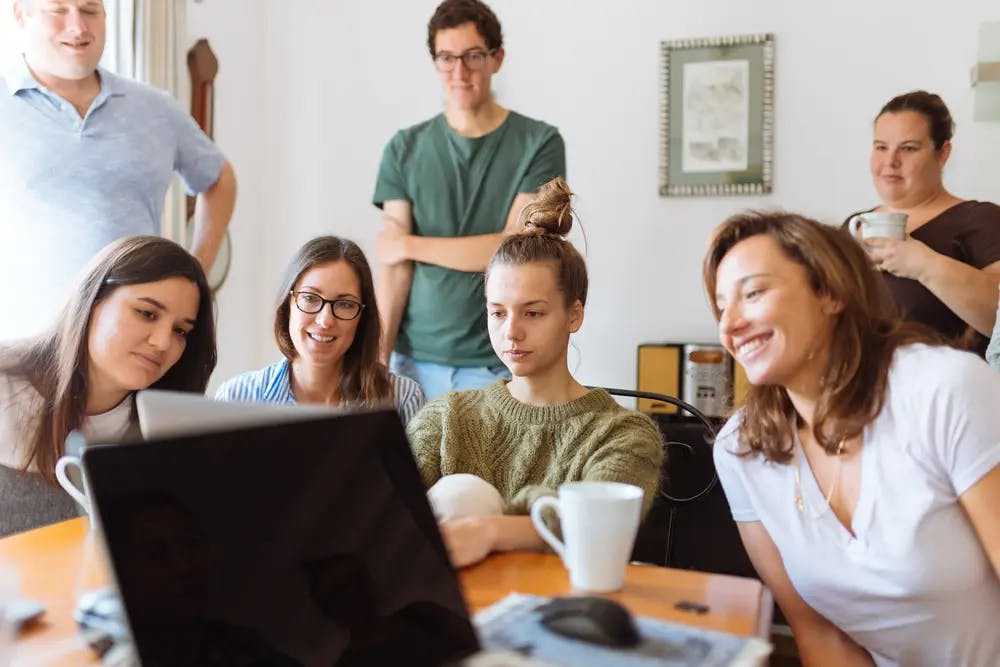


Welcome to the enlightening realm of learning communities, where fellow students come together to deepen collective knowledge and embark on a shared journey of academic and personal growth. In these communities, participants are aligned with shared objectives, creating a nurturing environment that transcends traditional classroom learning.
This collaborative space allows students to engage with one another, exchange ideas, and collectively enhance their understanding. In this exploration, we will uncover the myriad ways in which learning communities not only enrich the educational experience but also forge stronger connections among peers, fostering a supportive network of shared wisdom and cooperation.
Let’s dive into the heart of these communities and discover the transformative effects they have on student life, redefining our perceptions of education and collaborative growth. communities align participants positive outcomes accelerates progress residential component skill building opportunities other students campus activities residence halls higher education share ideas
Have you ever wondered why some students seem to breeze through college, not only acing their courses but also making lifelong friends and memories along the way? The secret might just lie in something called a learning community. A learning community is more than just a group of students taking classes together; it’s a vibrant, dynamic system that can transform the educational experience.
The #1 to make money online with TikTok Search (FREE TRAINING)

Learning communities extend their influence far beyond the confines of the classroom. They encourage students to participate in out-of-class experiences that reinforce what they’re learning. This holistic approach leads to a richer, more meaningful education.
Imagine learning about marine biology and then getting to explore a coral reef with your classmates. Or studying architecture and visiting iconic buildings. These are the types of experiences that learning communities can offer, making education an adventure rather than a chore.
In a learning community, the pace of learning often accelerates. This is due to the collective knowledge and shared goal among participants. When students, faculty members, and other key stakeholders come together, the exchange of ideas and fast cycle learning leads to remarkable outcomes.
Learning communities have become an integral part of higher education, redefining how progress in learning and personal development is achieved. The unique structure of these communities aligns participants with a common purpose and shared goals, creating an environment where the pace of learning not only accelerates but also becomes more meaningful and impactful.
The Synergy of Shared Goals and Collective Knowledge:
In a learning community, the collective knowledge of participants intermingles, creating a rich tapestry of ideas and perspectives. This environment encourages students to share ideas openly, fostering a collaborative learning culture. When students, faculty members, and other key stakeholders engage in this dynamic exchange, it leads to a deeper understanding and application of concepts. This collaborative approach ensures that learning is not a solitary pursuit but a shared journey towards achieving positive outcomes.
Positive Outcomes Through Fast Cycle Learning:
The concept of fast cycle learning is central to the effectiveness of learning communities. This approach enables participants to quickly assimilate new information, apply it, reflect on their experiences, and then iterate their understanding. Such a cycle not only accelerates progress but also ensures that learning is adaptable and responsive to the changing needs and interests of the students.

The Residential Component: Living and Learning Together:
Many learning communities incorporate a residential component, particularly in universities where students reside in residence halls. This aspect of learning communities creates a living-learning experience where the boundaries between academic learning and life skills blur. Living alongside other students who are part of the same community fosters a sense of camaraderie and mutual support, enhancing the overall learning experience.
Skill Building Opportunities Beyond the Classroom:
Learning communities offer numerous skill-building opportunities that go beyond traditional academic learning. Students engage in various campus activities, workshops, and group projects, which are instrumental in developing critical thinking, leadership, communication, and teamwork skills. These skills are essential for success in both academic and professional arenas, and learning communities provide a supportive environment for these skills to be nurtured and honed.
Engaging with Other Students in a Collaborative Space:
The opportunity to engage with other students from diverse backgrounds and disciplines is one of the most valuable aspects of learning communities. This diversity of thought and experience enriches discussions and problem-solving sessions, allowing students to approach challenges from multiple perspectives. The act of sharing ideas and working collaboratively not only deepens individual understanding but also fosters a sense of belonging and community.

In the digital age, the concept of learning has been revolutionized by the emergence of online learning communities. These virtual forums are not just platforms for acquiring knowledge; they are gateways to vast networking opportunities. Students participating in online courses have the unique advantage of interacting with peers from various industries and regions, paving the way for significant career advancements.
For teachers, online learning communities open doors to international connections and insights into global industry trends.
Joining a community on the Teach.io platform offers distinct benefits for both teachers and learners.
Online learning communities, particularly platforms like Teach.io, represent the future of education, breaking down geographical barriers and creating a dynamic, interconnected world of learners and educators.
Whether you are a student looking to broaden your professional network or a teacher aiming to expand your pedagogical horizons, these virtual communities offer a wealth of opportunities for growth, collaboration, and advancement.
The #1 to make money online with TikTok Search (FREE TRAINING)

Learning communities are not just about academic learning; they are also about skill building and preparing for leadership roles. Students often get involved in organizing events, leading discussions, and even contributing to the curriculum design.
Emily started as a shy participant in her learning community. Over time, she grew into a confident leader, organizing field trips and leading study sessions. This transformation was a direct result of the supportive and empowering environment of her learning community.

In a learning community, faculty members play a crucial role. They are not just teachers; they are mentors, guides, and sometimes even friends. Their involvement can significantly enhance the learning experience, providing support and insight that goes beyond traditional teaching methods.
Professor Smith wasn’t just a lecturer; he was a mentor who stayed after class to discuss life, careers, and the universe. His dedication made a profound impact on his students, inspiring them to pursue their passions with vigor.
Participation in learning communities doesn’t just benefit individual students; it has the potential to achieve systems level change. By fostering a strong community of informed and engaged individuals, these communities can influence broader societal changes.
A group of students in a learning community focused on sustainability initiated a campus-wide recycling program. Their collective effort not only transformed the campus but also inspired other institutions to follow suit.
Joining a learning community is more than just a smart choice for your education; it’s a decision to be part of something bigger. It’s about forming lasting friendships, expanding your horizons, and making a difference. It’s a journey of growth, exploration, and discovery – one that can define your college experience and shape your future.





